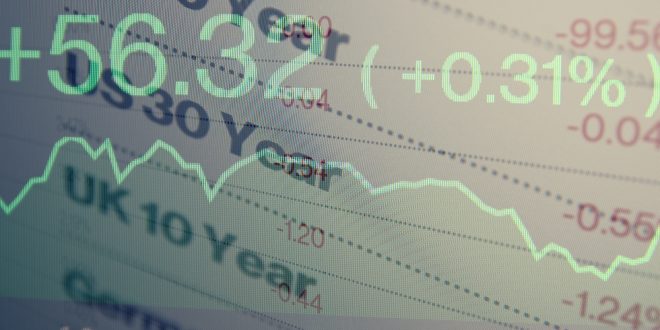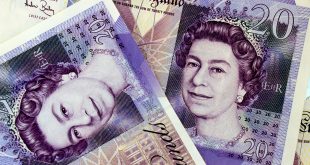Treasury yields in the United States significantly rose on Tuesday due to increased hopes for economic recovery and the easing of lockdown measures amid the rollout of Coronavirus vaccines.
This is the first session for the week as Monday marked the federal holiday of Presidents Day in the United States.
Return on the 10-year Treasury bonds increased by 9.9 basis points, the biggest daily rise in yields since November 2020, to reach 1.298%, its highest level in a year.
Similarly, the 30-year Treasury bond yield rose by 8.6 basis points to 2.089%.
Meanwhile, return on the two-year notes leveled up by 1.2 basis points to reach 0.121%.
The gap between the two-year and the benchmark 10-year yields reached its highest level in about four years at 1.18%.
Investors are moving away from the long-term debt instruments amid increased risk sentiment and hopes for economic recovery from the impact of the Coronavirus pandemic.
This was evident in movements in other markets yesterday, with the German 10-year bond yields rising to their highest level in six months, and the 30-year bond yields in Switzerland increasing above 0% for the first time since April 2020.
An expected rise in inflation amid the easing policies of the U.S. Federal Reserve and the expected huge stimulus spending by the Biden administration is leading to higher rates.
In addition, the expectations for a strong rise in inflation comes especially with the recent surges in energy prices due to extreme cold weather conditions in southern parts of the United States and the halt of oil plants and wind farms in Texas
With the stock market reaching new record levels, investors are also swayed by other investment options compared with the long-term risk-free debt instruments.
Moreover, data showed that the headline General Business Conditions Index of the New York Fed’s Empire State Manufacturing Survey rose to 12.1 in February from 3.5 in January, enhancing positive expectations for the economy.
Speaking of inflation, the President of the Federal Reserve Bank of San Francisco, Mary Daly, on Tuesday played down the risks of a rise in inflation in the United States.
Daly noted that there are concerns in the market of a surge in the inflation rate, but said that she does not this unwanted inflation is around the corner.
In the case inflation suddenly rose, the Federal Reserve has many tools to maintain inflation at the 2% target, she further added, pointing to the higher risk of losing jobs as the economy struggles with the impacts of the Coronavirus pandemic.
Meanwhile, the President of the Federal Reserve Bank of Kansas City, Esther George, said earlier today that the rise in yields does not raise a concern or a challenge to the Fed’s monetary policy, linking it to the improved sentiment towards economic recovery.
“I don’t think the rise we’ve seen is concerning to me at this point, but we’ll keep watching it to see whether we’re getting other signals about tightening financial conditions.”
“That will be a time for my colleagues and I to begin to make judgements about is there broad-based, persistent pressure on prices that require the Federal Reserve to respond or to change its policy stance. That will be among the core of our deliberations over coming years.
A recent report by Reuters pointed to an expected selling of Treasury notes by mortgage investors, which could lead to more increases in yields.
 Noor Trends News, Technical Analysis, Educational Tools and Recommendations
Noor Trends News, Technical Analysis, Educational Tools and Recommendations





